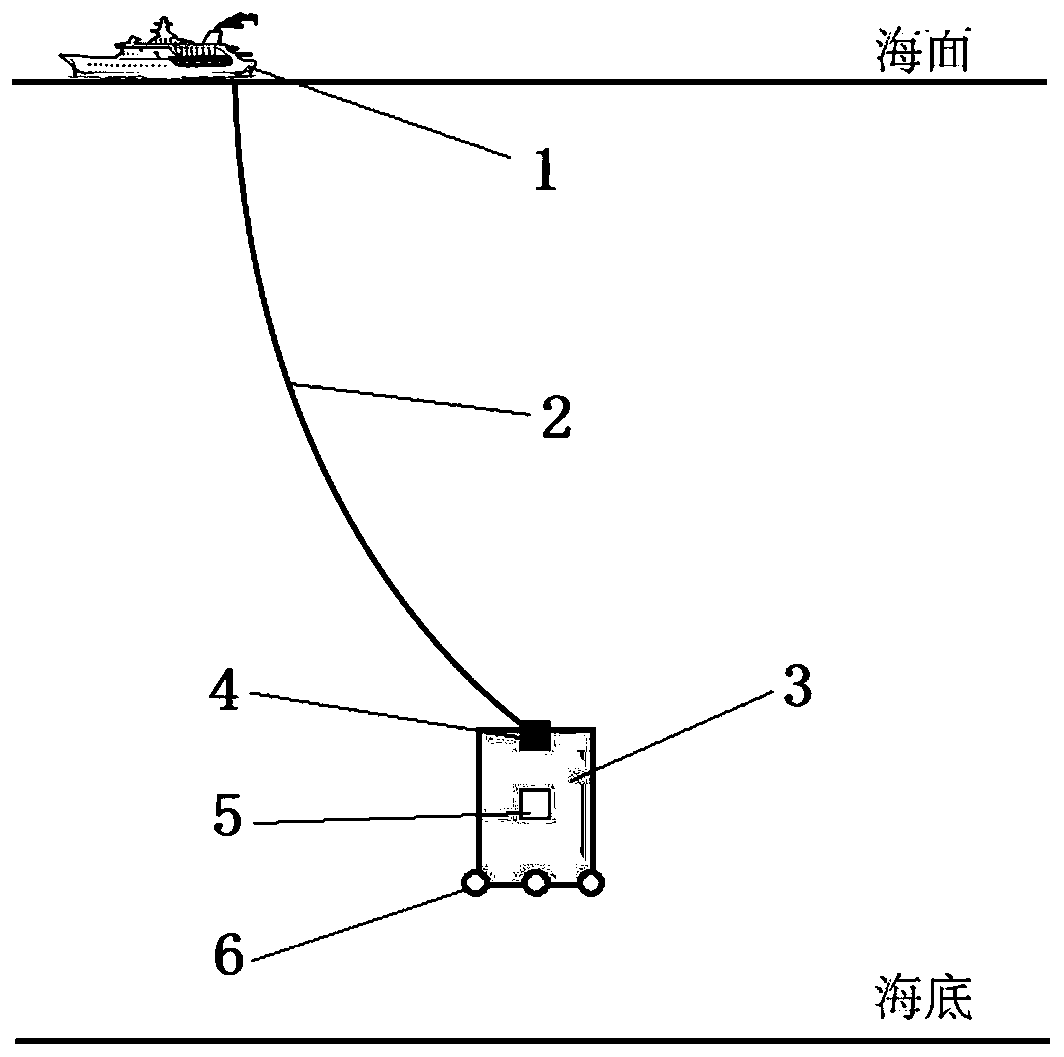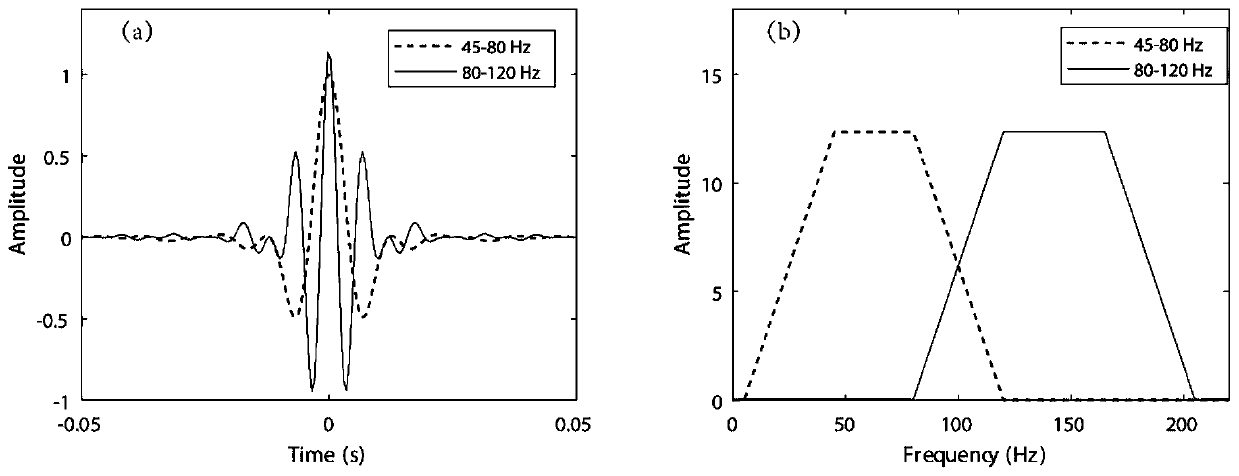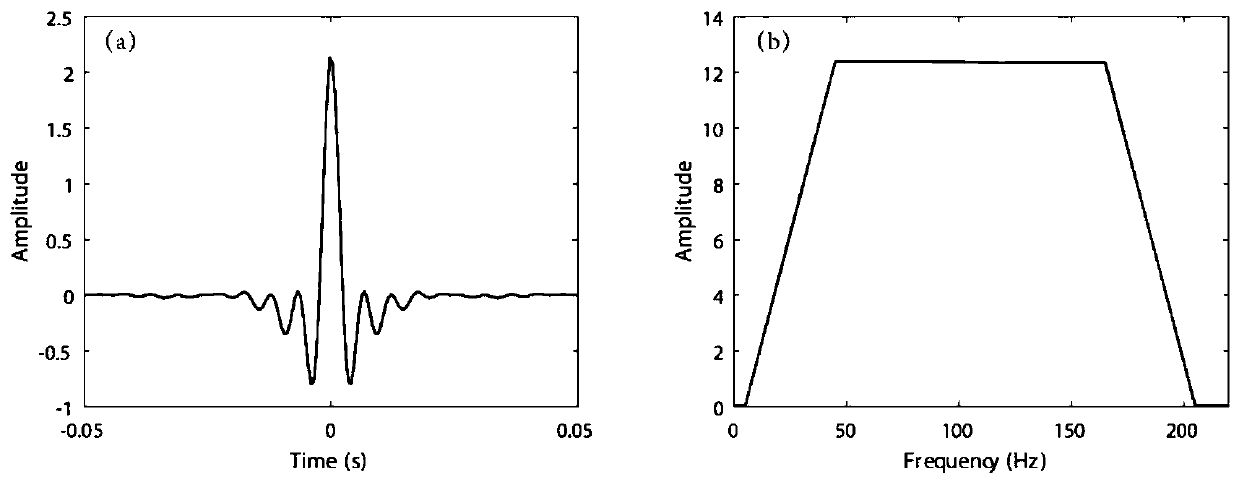Towed deep sea seabed shallow structure acoustic detection system and method
A detection system and tow-type technology, applied in the field of marine exploration, can solve the problem of inability to achieve high-precision detection of seabed surface information, and achieve the effects of simple structure, improved signal-to-noise ratio, and wide application range
- Summary
- Abstract
- Description
- Claims
- Application Information
AI Technical Summary
Problems solved by technology
Method used
Image
Examples
Embodiment Construction
[0026] The present invention will be further described below in conjunction with the accompanying drawings.
[0027] Such as figure 1 As shown, the towed deep-sea subsea shallow structure acoustic detection system includes a mother ship console 1 and a towing body 2. The mother ship console 1 is connected to the towing body 3 through a photoelectric composite cable 2, and the length of the photoelectric composite cable 2 is adjustable; The low-frequency transducer sound source 4 and the high-frequency transducer sound source 5 on the vertical central axis of the drag body are installed on the drag body 3, and the hydrophone 6 evenly arranged around the bottom of the drag body, the The sound source 4 of the low frequency transducer is located directly above the sound source 5 of the high frequency transducer. The hydrophone can be as close as 5-10m away from the seabed.
[0028] In a specific implementation of the present invention, the high-frequency sound source is mainly u...
PUM
 Login to View More
Login to View More Abstract
Description
Claims
Application Information
 Login to View More
Login to View More - R&D
- Intellectual Property
- Life Sciences
- Materials
- Tech Scout
- Unparalleled Data Quality
- Higher Quality Content
- 60% Fewer Hallucinations
Browse by: Latest US Patents, China's latest patents, Technical Efficacy Thesaurus, Application Domain, Technology Topic, Popular Technical Reports.
© 2025 PatSnap. All rights reserved.Legal|Privacy policy|Modern Slavery Act Transparency Statement|Sitemap|About US| Contact US: help@patsnap.com



